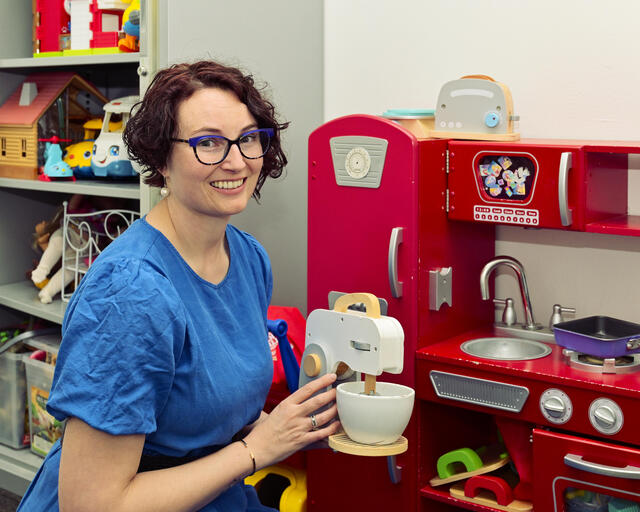Matching you with the right behavioural support is a big focus for Anna Treloar-Tanner and her Barwon Occupational Therapy team.
The comprehensive practice offers occupational therapy, positive behaviour support, therapy assistant services, and dietetic support for children, youth, adults, and the elderly.
Anna is an endorsed mental health occupational therapist and believes a big part of providing behavioural support is not about changing a person but instead trying to understand their view and what they need.
“People are just people, and sometimes it’s about finding your tribe and the right people,” she said.
“A good proportion of our clients are neurodiverse, whether that’s autism, ADHD, bipolar, dyspraxia, learning disabilities or a range of different neurotypes.
“Each client is different…and we ensure that we’re going to be a good match for that family and the clients; if not, we look for an alternative option.
“There are lots of different agencies that provide behaviour support, and they might be focusing on a different area that we’re not necessarily providing at that given point in time.”
Barwon Occupational Therapy’s behaviour support team focuses on non-pharmacological interventions for behavioural concerns while working alongside clients’ carers, schools, and agencies.
“I often describe ourselves as scaffolding that goes around the individual as well as working and moving with the individual,” Anna said.
“We shouldn’t be a static thing. We should be able to be moved around and work with the person in whatever settings are important to them.
“Our clients deserve really good quality clinicians and…I want to give my clients the best opportunity to develop skills, understanding, and qualities.
“For us, it’s often advocating for our client that what you deem as a behaviour of concern may not be a behaviour of concern…and we need to be thinking about what they want and need.”
Anna said an important part of assisting people with behavioural concerns was that there were no judgements and that each client was treated respectfully.
“People quite often get confused and believe that an individual can do a task but they’re just choosing not to,” she said.
“I’m the mum of two neurodiverse little people, and I have multiple friends who are health professionals who are neurodiverse as well.
“It is about being able to help you and your family at your normal baseline so that it is putting in strategies that will work for you and your family.
“I’m going to use the example of autism; it’s important to understand how one client can be doing an activity one day and then the next day they can’t do the activity.”
You don’t need a referral to visit Barwon Occupational Therapy, but consulting your GP for a mental healthcare plan or chronic disease management plan can be beneficial.








